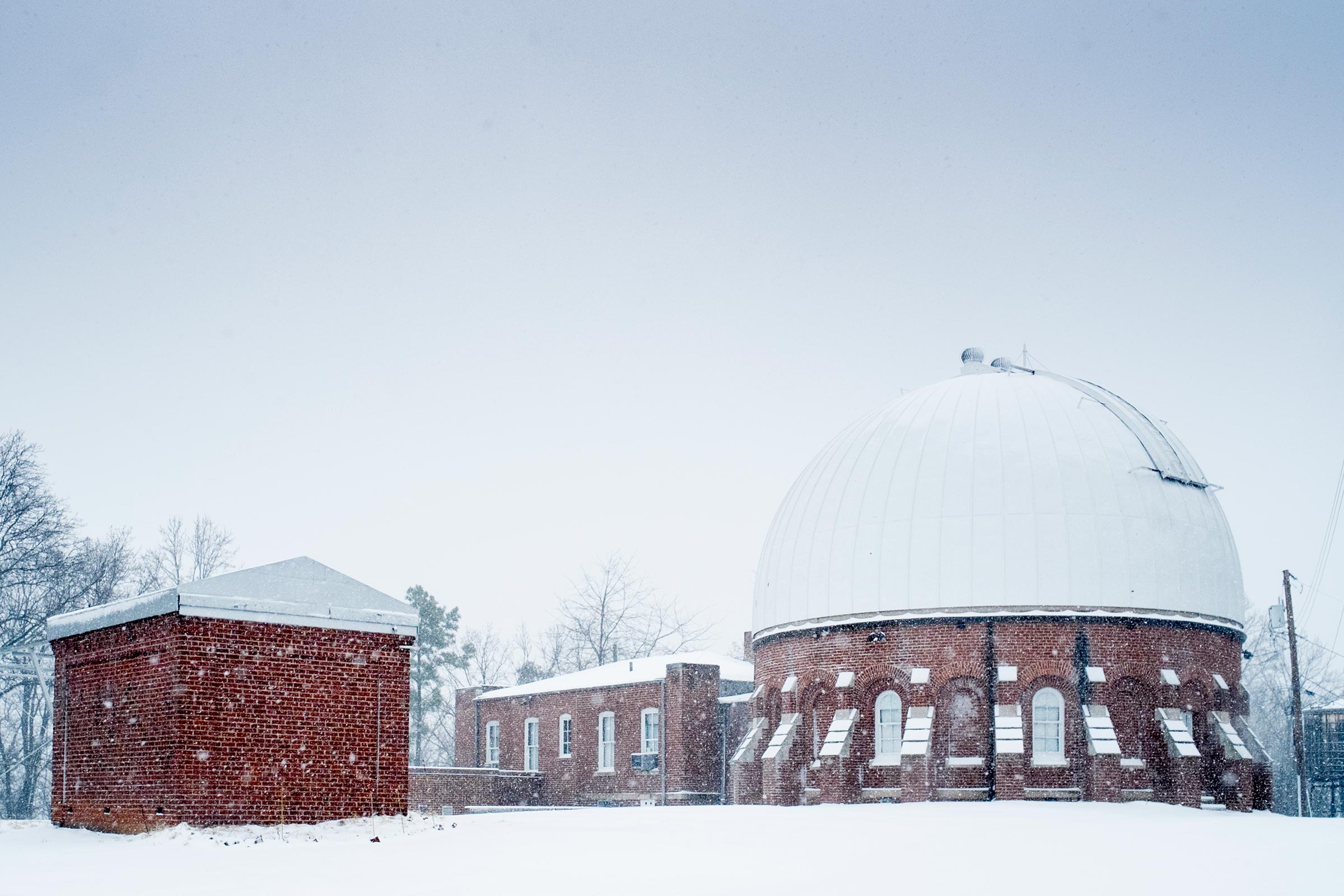On Grounds, like most of the Eastern Seaboard, it’s been really cold the past few days. Can’t-feel-my-face cold. Run-not-walk-in-the-parking-lot cold.
But the recent frigid conditions recorded at McCormick Observatory haven’t even cracked the top 20 lowest temperatures recorded over the more than 120 years of daily weather observations captured at the University of Virginia.
Coldest Temperatures Ever Recorded on Grounds
1.January 19, 1994 (-10°F)
2.January 21, 1985 (-9°F)
2.February 11, 1899 (-9°F)
4.February 10, 1899 (-8°F)
5.January 20, 1994 (-7°F)
6.January 17, 1982 (-5°F)
7.January 16, 1994 (-4°F)
7.February 14, 1899 (-4°F)
9.December 25, 1983 (-3°F)
9.January 18, 1982 (-3°F)
9.January 14, 1912 (-3°F)
9.February 6, 1895 (-3°F)
13.January 11, 1982 (-2°F)
13.January 17, 1977 (-2°F)
13.December 30, 1917 (-2°F)
16.February 20, 2015 (-1°F)
16.December 22, 1989 (-1°F)
16.December 26, 1983 (-1°F)
16.January 10, 1982 (-1°F)
16.January 18, 1893 (-1°F)
16.January 17, 1893 (-1°F)
The coldest ever? Jan. 19, 1994, when temperatures fell to 10 degrees below zero. It was 9 degrees below zero on Jan. 21, 1985. It hit the same mark on Feb. 11, 1899 – and the day before that, it was minus-8.
In total, UVA has recorded low daily temperatures below zero only 21 times, and none of them came during this recent cold snap.
Jerry Stenger is director of the State Climatology Office at UVA (as well as the custodian of those handwritten 19th-century weather records; daily data goes back to about 1895, with sporadic records dating to the 1880s). He said the conditions that usually – but not always – produce the coldest conditions on Grounds include clear, calm winter nights.
“This allows maximum radiation of heat from the ground out into space. With no wind, warmer air doesn’t circulate back down to the surface,” he said.
Snow was also a factor in many of UVA’s coldest temperatures. A blanket of snow is an excellent “black body radiator,” which radiates heat back up toward space before it can reach the ground, Stenger said.
The current, blustery streak of bitter cold is the result of a frigid air mass that has moved much farther south than usual, he said, and not by the much-ballyhooed “bomb cyclone” that brought snow to points further east.
“The jet stream has dipped very far to the south, bringing a big dome of Arctic air,” he said.
Knowing that it was actually more frigid in 1899 is cold comfort, to be sure, but forecasts have temperatures returning closer to Charlottesville’s seasonal averages by Monday.
Media Contact
Article Information
January 5, 2018
/content/coldest-temperatures-recorded-during-120-years-weather-data-uva

